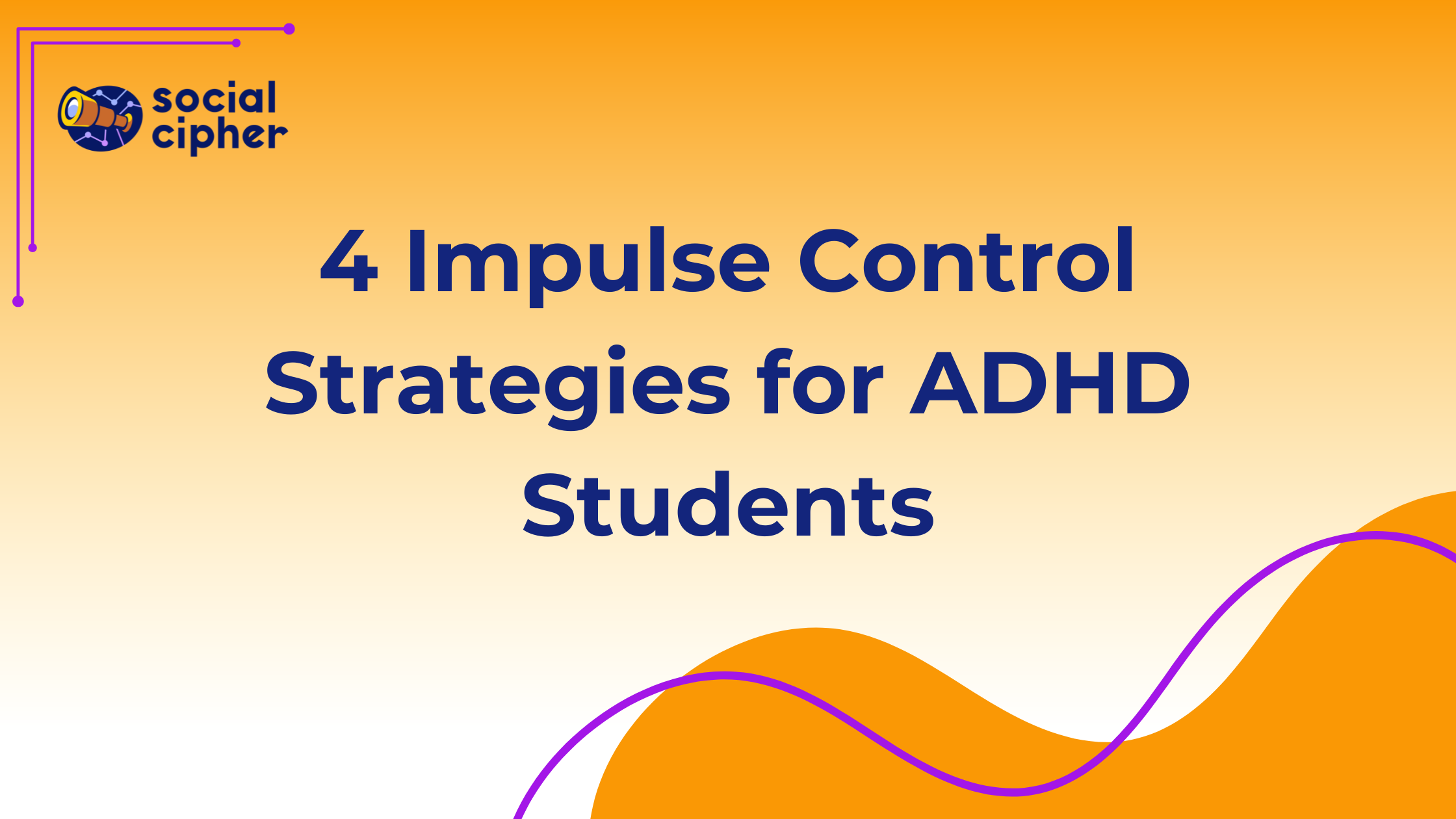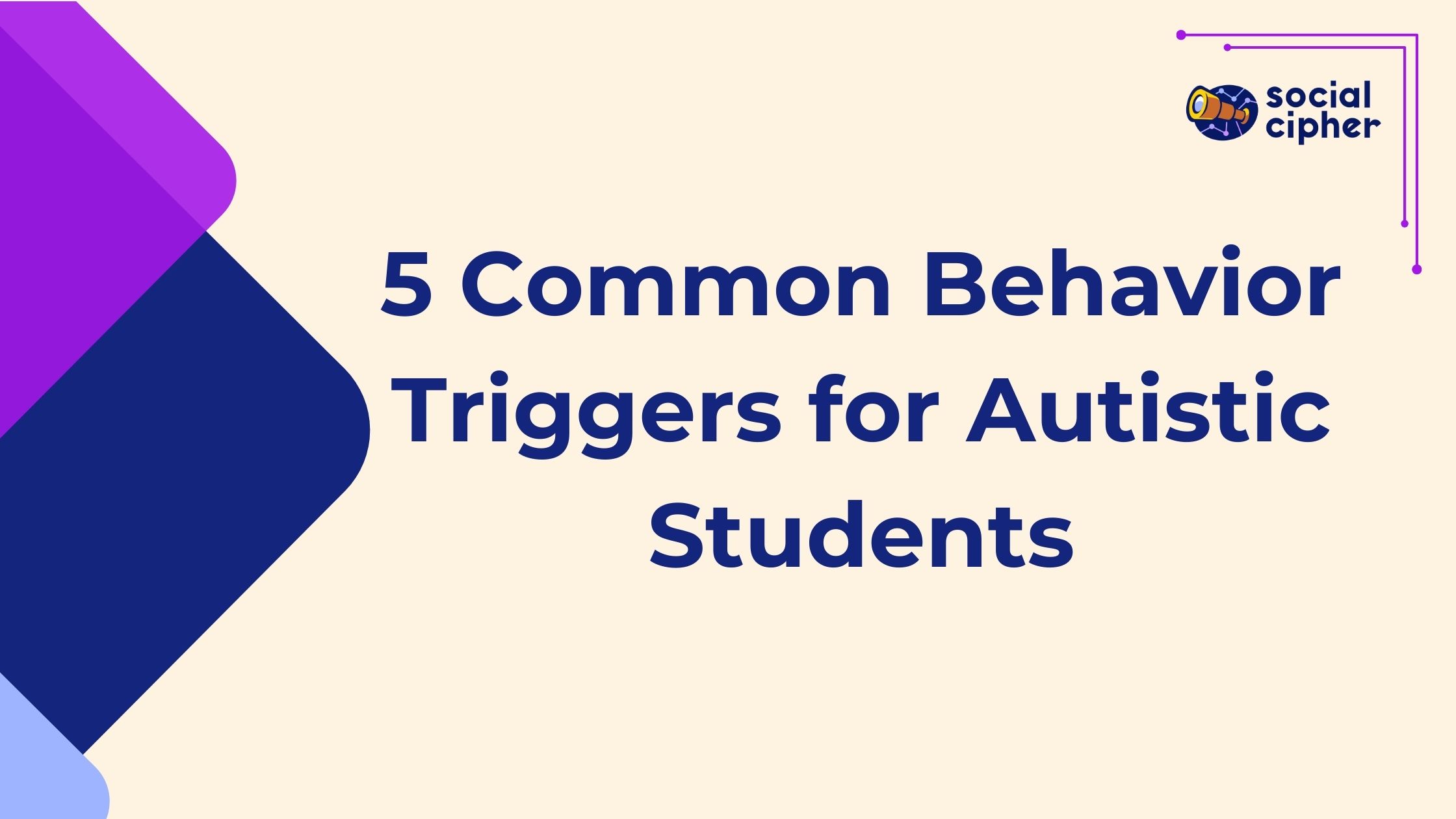%20(3).png)
Social-Emotional Learning, Game Theory, & Autistic Girls
Our CEO Vanessa Castañeda Gill was recently featured on the Two Sides to the Spectrum podcast, hosted by the incredible Meg Proctor, MS, OTR/L of Learn Play Thrive. Vanessa was diagnosed with Autism and ADHD at the age of 14, she had no neurodivergent female role models or sense of autistic identity, which led her down a challenging road. She had only heard stereotypical things of autistic people, such as being “bad at social connection” and believed that her only choice was to fit that mold, despite her desire for connection. In her college years she would begin building Social Cipher, a social-emotional learning game platform for autistic youth—as she wrote Ava, an autistic character’s story, she began to rewrite her own story.
How did Social Cipher come to be?
Vanessa hid her diagnosis for 6 years until she started college, where she was able to meet and connect with folks who were just as ambitious about life as she was. For the first time in her life, she was able to live free and combine her special interest in neuroscience research with her own personal experience—combining these two worlds together led to the creation of Social Cipher, which was started to help youth find self-advocacy language, things they adore about themselves and come to the realization of nuanced greatness and challenge of being a neurodivergent person in a neurotypical world.
Today, Social Cipher is a game-based, social-emotional learning platform for neurodiverse youth and the professionals who work with them. We’ve worked to build a space pirate adventure video game series, Ava, that continues to help youth understand themselves and those around them.
Social Cipher, which was started to help youth find self-advocacy language, things they adore about themselves and come to the realization of nuanced greatness and challenge of being a neurodivergent person in a neurotypical world.
The Importance of Representation
Vanessa didn’t meet another autistic woman until the age of 20 years old, at this point she had known for 6 years that she was autistic. Growing up, all of the information Vanessa received surrounding autism had been researched and presented by neurotypical folks. This is why representation within the neurodivergent community is so important, from How Men and Women Experience Autism Differently to Why We Need More Latinx Autistic Stories. Hearing stories of people like you can help when facing challenges head-on and determining strategies to help advocate for yourself.
Why Gaming
Studies show that neurodivergent youth spend 41.4% of their free time playing video games compared to 18% of their neurotypical peers. This creates a space for us as developers to incorporate skills that will not only benefit but empower neurodivergent youth. ‘
Our game series, Ava, follows the adventures of an autistic star mapper. She navigates through the galaxy to find community, while battling her own self-doubt and deciding to recruit or not recruit space pirates to join her team. The game is designed so that these space pirates can be determined as worthy or good for your team—providing the space to identify if each space pirate is respectful and serves as a good ally in Ava’s corner.
What is Learn Play Thrive?
If you haven’t yet heard of Learn Play Thrive, we highly encourage you to check them out! Its mission is to provide resources and continuing education training that promotes the use of strengths-based, ethical, neurodiversity-affirming practices for professionals working with autistic people. Learn Play Thrive is truly listening to autistic voices and recognizes that autistic adults are the real experts on autism. They are committed to continually updating their beliefs and content as they listen, learn, and grow. Most importantly, they have respect for the neurodivergent community.
Learn more about Learn Play Thrive: https://learnplaythrive.com/
Interested in getting Ava for your therapy center or school for engaging, empowering social-emotional learning? Schedule a chat with us!



%20(7).png)
.png)




